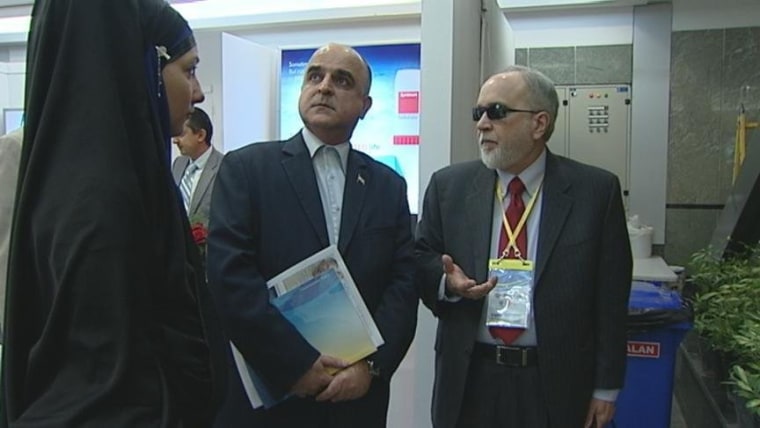TEHRAN – An American doctor from Mississippi searched far and wide for solutions to his state’s endemic health problems.
Now, after years of practicing what he calls “health diplomacy,” Dr. James Miller, director of Oxford International Development Group in Mississippi, thinks he may have found some solutions in what may seem like an unlikely place: Iran.
“When you look at health disparities and conditions of the Delta region of Mississippi, and the systemic failures of providing low-cost access to an impoverished region, this has led to health… conditions basically on the same level of developing countries,” Miller said recently in Tehran. “Infant mortality rates in the Delta region in some instances are the same as places like Syria or the Gaza Strip – in the heart of the United States – I was shocked.”
Miller began looking around the globe for successful systems of health care delivery that might be adaptable to Mississippi.
Iran’s system stuck out – particularly since it faces similar challenges like a lack of money and medical personnel, as well as vast rural distances and limited public transportation.
'Easy access' to health care
Mississippi ranks almost dead last in many national health surveys; for instance it tied Louisiana for 49th out of 50th place in America’s Health Rankings 2012 report by United Health Foundation.
With challenges like high levels of infant mortality, low birth weight infants, hypertension, diabetes, smoking, and obesity – the Mississippi Delta area in particular is on par with many developing countries.
Iran has developed an integrated health system. The foundation of the system is a network of community health houses staffed by locals who create a cultural competency and affinity with the people they are serving.
“I looked at the numbers of what they were achieving and infant mortality dropped by 70 percent, health disparities between urban and rural populations disappeared and they provide care to the farthest villages in rural Iran. To me this was a remarkable achievement,” said Miller.
In Iran’s health care system, remote village health houses are the first line of defense, staffed by villagers known as behvarzes.
The behvarzes are trained to provide basic health services for villages of up to 1,500 people who live within an hour's walking distance. Male behvarzes take care of sanitation, water testing and environmental projects. The women concentrate on child and maternal health, family planning, vaccinations and tracking each family’s births, deaths and medical histories. There are currently about 17,000 health houses across the country serving 23 million rural Iranians.

Miller explained why he thinks the Iranian system is so successful: “It provides easy access to primary health care services.”
He described how even in a dense urban area of Tehran, the health centers fit right into its surroundings.
“Located in the middle of a densely crowded block of apartments and shops – with cars parked so tightly packed it would be a miracle to maneuver one out again – the health post is well integrated into the community it serves. Just as the health houses are in the smaller rural towns and villages.”
'Could be a miracle'
Miller has been working on the project for years, but it has been a slow process because the political climate in the U.S and Iran has not been conducive to cooperation. But, now with the election of President Hassan Rouhani, and President Barack Obama’s diplomatic efforts, Miller said things have started to move quickly.
“Since the election of Rouhani everything has gone into super-overdrive in [terms of] getting things organized,” said Miller. He added that he has sensed a palpable difference during his time in Iran this month.
“Although my experiences in Iran have always been positive and I've found the people warm, open, friendly, and generous, this trip has revealed something more – a strong feeling of hope that relations between the U.S. and their country will improve and the animosity coming from both sides will end very soon.”
Miller said there is a great deal of mutual respect between his Iranian and American colleagues.
“Health diplomacy has been going on for many years, it’s a foundation to build on. Colleagues of mine were frightened to come to Iran, but once here, people were so warm and generous it’s like all those misconceptions just flowed away,” said Miller. “The people of Iran and America are natural friends and we can collaborate and generate a lot of good things together.”
While in Iran he is going to sign a “memorandum of understanding” that will detail the next phase of implementation when Iranian physicians, health care experts and researchers will come to the Mississippi Delta to help implement the program.
Asked when he expects the Iranian team to visit the United States, he said hopefully very soon and said to check back in three weeks.
While politics have long stymied cooperation, Miller believes now is the time for a breakthrough.
“I think now, we have a chance to put [the Iranian model] into play and that could be a miracle.”
Related